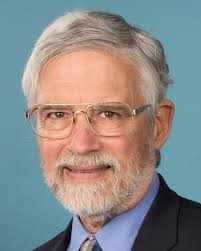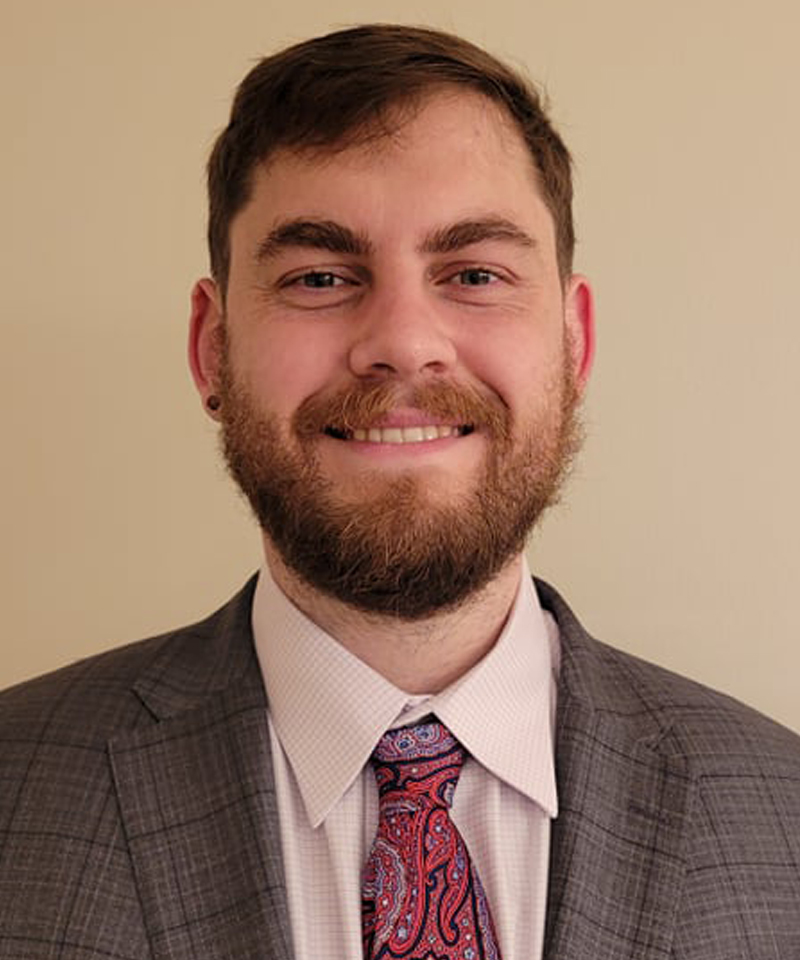2023 Fellows Conference Showcases New Research on Technology and International Security
On April 26, IGCC hosted the 2023 annual conference of the Postdoctoral Fellowship in Technology and International Security. A joint initiative of IGCC and the Lawrence Livermore and Los Alamos national Laboratories, the Washington, D.C.-based fellowship facilitates scientific and policy analysis to contribute to the security of our world.
Ensuring nuclear security requires close collaboration between scientists and policymakers. While many experts specialize in only one of these areas, the University of California (UC) has long focused on bringing the two communities together, notably through its UC-wide Institute on Global Conflict and Cooperation (IGCC).
Established in 1983 under the leadership of renowned physicist and Manhattan project participant Herbert York, IGCC connects scholars from across the UC system, the Los Alamos National Laboratory (LANL), and the Lawrence Livermore National Laboratory (LNLL) to produce and use policy-relevant research to address global security challenges. IGCC’s portfolio spans traditional security issues such as defense innovation, strategy and deterrence, nuclear weapons policy, and security cooperation, and emerging challenges such as environmental threats, geoeconomics and great power competition, and threats to democracy.
Two major pillars of the U.S. national innovation system, the University of California system and the affiliated National Laboratories of Lawrence Livermore and Los Alamos have long collaborated in a range of areas. Since the founding of UC, the UC Regents, Office of the President, faculty, and students have worked together with lab directors and lab technical staff to achieve scientific breakthroughs and prepare the next generation of problem-solvers.
To strengthen collaboration at the nexus of social science and security and technology, IGCC, in cooperation with the Center for Global Security Research (CGSR) at LNLL and the National Security and International Studies Office at LANL, inaugurated the Postdoctoral Fellowship in Technology and International Security in 2021. The fellowship is directed by Professor Neil Narang, Research Director at IGCC and Associate Professor of Political Science at UC Santa Barbara.
“This new collaborative initiative leverages the combined excellence in science, technology, and global security from across the University of California and the UC-managed National Laboratories,” says Narang. “Historically, UC and Lab researchers have been at the forefront of national security issues, beginning with the pioneering contributions during the Manhattan Project and continuing through the Cold War with deterrence theory. Today, scholars from across the UC system and UC-managed National Laboratories continue to generate research on global conflict and cooperation that has important policy implications.”
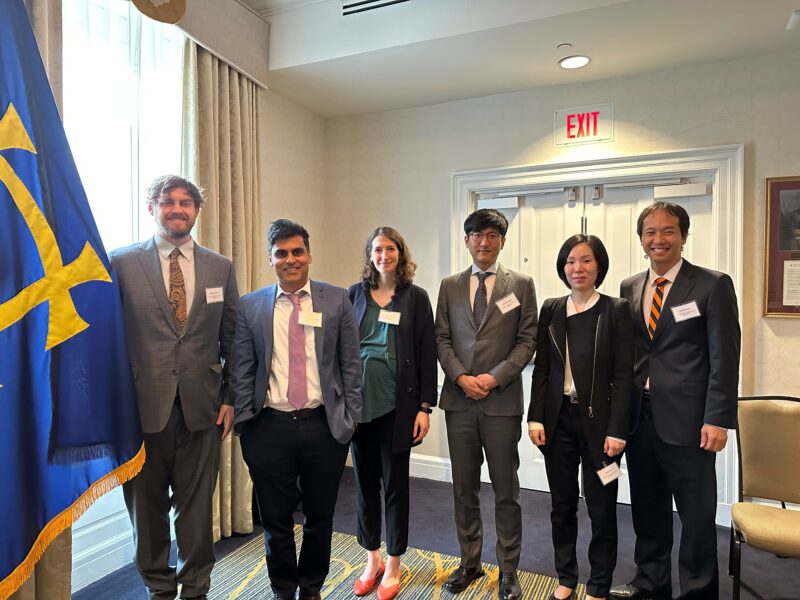
The postdoctoral fellows presented their work at the 2023 Annual Conference in Washington, D.C. on April 26. From left: Edward Jenner, Neil Narang, Shira Pindyck, Kyungwon Suh, So Yeon (Ellen) Park, and Chansong Cameron Lee.
Now in its second year, the postdoctoral fellowship advances the labs’ tradition of drawing heavily on postdoctoral fellowships to source and train the next generation of nuclear experts. LLNL hosts roughly 300 postdoctoral researchers each year, while the postdocs at LANL number 500 to 600 each year. LANL converts about 50 percent of its postdocs to staff, with a similar hiring rate at LNLL. The Postdoctoral Fellowship in Technology and International Security is unique, however, because it allows participants to pursue their own research on nuclear security issues with the benefit of resources from UC and both labs, all while working in the policy-rich environment of Washington, D.C.
“The joint fellowship is quickly growing in prestige and fast becoming one of the most selective postdoctoral fellowships in international security nationwide,” said Narang. “The backgrounds of the applicants and fellows cover all disciplines in science and engineering, social sciences, and humanities, and their research spans the implications of emerging technologies on international security, nuclear technology, autonomous weapons, artificial intelligence, remote sensing, cyber technology, and hypersonic vehicles.”
The 2023 Annual Conference for the UC-National Labs Postdoctoral Fellows in Washington, D.C. on April 26 was an opportunity for lab researchers, faculty, and policy experts to engage with the culmination of the postdocs’ research. Both political and scientific aspects of nuclear security were on the agenda, as the fellows presented topics ranging from gender and innovation in the military to the potential commercialization of nuclear fusion energy.
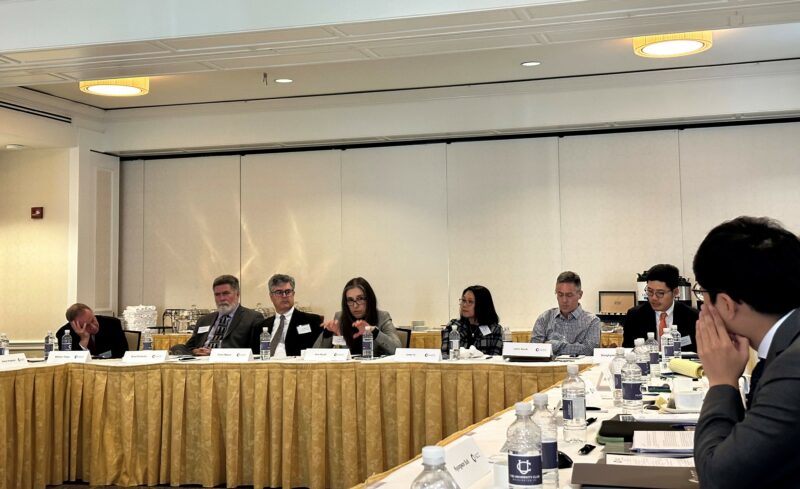
Participants included representatives from both National Labs and the University of California Office of the President. From left: William Tobey (LANL), Brad Roberts (LLNL), Thom Mason (LANL), Kim Budil (LLNL), June Yu (UCOP), John Scott (LANL), Donghyeon Kim (LLNL), and Kyungwon Suh (IGCC).
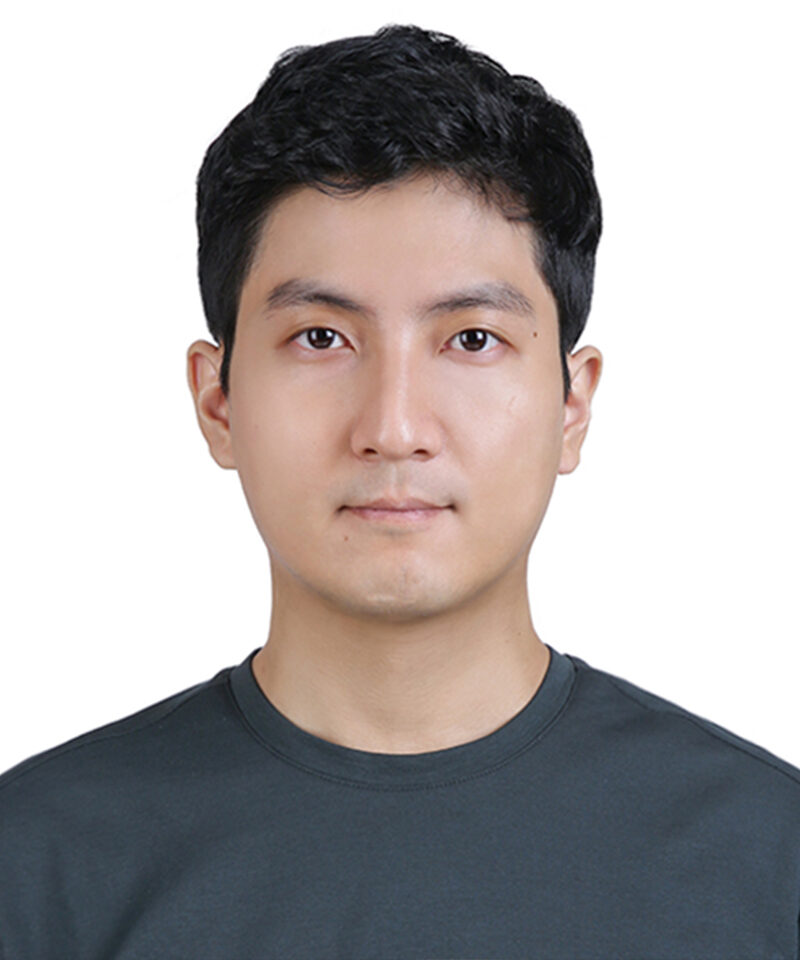
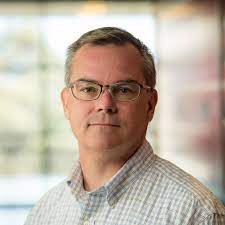 Kyungwon Suh, who holds a Ph.D. in political science from Syracuse University, opened the conference with his work, “Signaling a Mushroom Cloud: Explaining the Effect of Nuclear Signals on Crisis Outcomes.” Using an original dataset, which covers all episodes of military signals employed by nuclear-capable forces in crises, Suh found that the use of militarized nuclear signals increases the risk of inadvertent nuclear escalation. This, he argues, influences an adversary’s expected costs of counter-escalation or inaction. His “dream discussant,” Professor Erik Gartzke of UC San Diego, praised Suh’s work and encouraged Suh to delve deeper into his theory of war and further explore the processes underlying his ideas.
Kyungwon Suh, who holds a Ph.D. in political science from Syracuse University, opened the conference with his work, “Signaling a Mushroom Cloud: Explaining the Effect of Nuclear Signals on Crisis Outcomes.” Using an original dataset, which covers all episodes of military signals employed by nuclear-capable forces in crises, Suh found that the use of militarized nuclear signals increases the risk of inadvertent nuclear escalation. This, he argues, influences an adversary’s expected costs of counter-escalation or inaction. His “dream discussant,” Professor Erik Gartzke of UC San Diego, praised Suh’s work and encouraged Suh to delve deeper into his theory of war and further explore the processes underlying his ideas.
Edward Jenner, a former Stanton Nuclear Security Fellow with a Ph.D. in chemical engineering from UC Irvine, followed with a presentation entitled, “Assessment of Fusion Energy Commercialization on the United States Nuclear Weapons Complex.” Through this relatively new project, Jenner seeks to understand how nuclear fusion energy might be commercialized in the near future. Professor John Holdren of the Harvard Kennedy School lauded the originality of the study and Jenner’s deep familiarity with the technical aspects of nuclear energy. Other participants agreed, and suggested incorporating a study of political ambiguities that might impact this transition in the future.
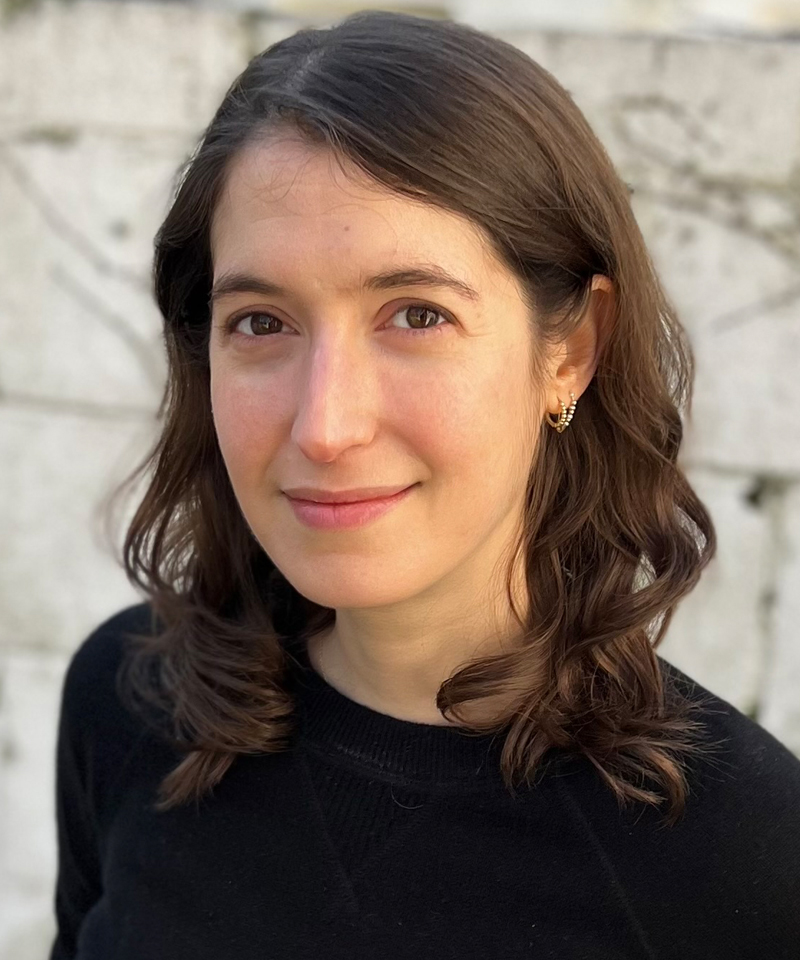
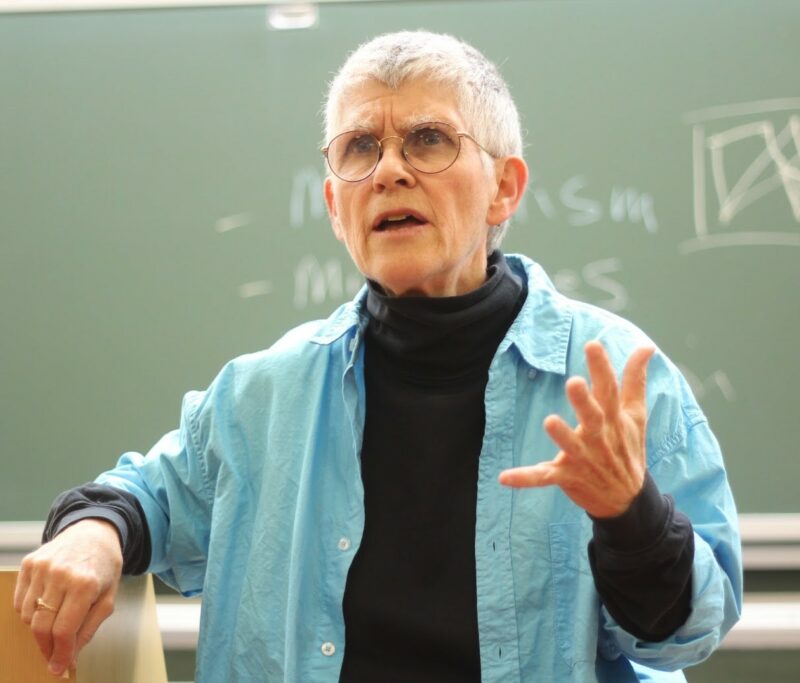 Shira Eini Pindyck, who earned a Ph.D. in political science from the University of Pennsylvania, shared the first two chapters of her draft book, Innovation and Inclusion in the Armed Forces, in which she argues that increased gender inclusivity in militaries will better facilitate the integration of military innovations. Her presentation sparked a discussion about the ways in which masculinities are inherent in the military’s cult of the “warrior,” which stymies innovation by feminizing—and assigning a lower status to—new processes or roles that reduce soldiers’ exposure to risk and the need for physical strength. Professor Cynthia Enloe from Clark University praised Pindyck’s work and urged conference participants to recognize that gender dynamics shape outcomes in any institution.
Shira Eini Pindyck, who earned a Ph.D. in political science from the University of Pennsylvania, shared the first two chapters of her draft book, Innovation and Inclusion in the Armed Forces, in which she argues that increased gender inclusivity in militaries will better facilitate the integration of military innovations. Her presentation sparked a discussion about the ways in which masculinities are inherent in the military’s cult of the “warrior,” which stymies innovation by feminizing—and assigning a lower status to—new processes or roles that reduce soldiers’ exposure to risk and the need for physical strength. Professor Cynthia Enloe from Clark University praised Pindyck’s work and urged conference participants to recognize that gender dynamics shape outcomes in any institution.
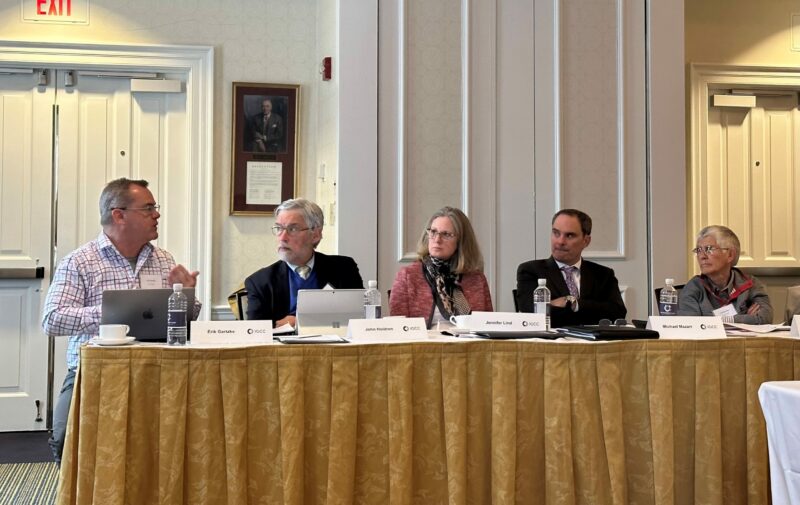
Five experts attended the conference as the postdoctoral fellows’ “dream discussants.” From left: Professor Erik Gartzke, Dr. Jonathan Holdren, Professor Jennifer Lind, Dr. Michael Mazarr, and Professor Cynthia Enloe.
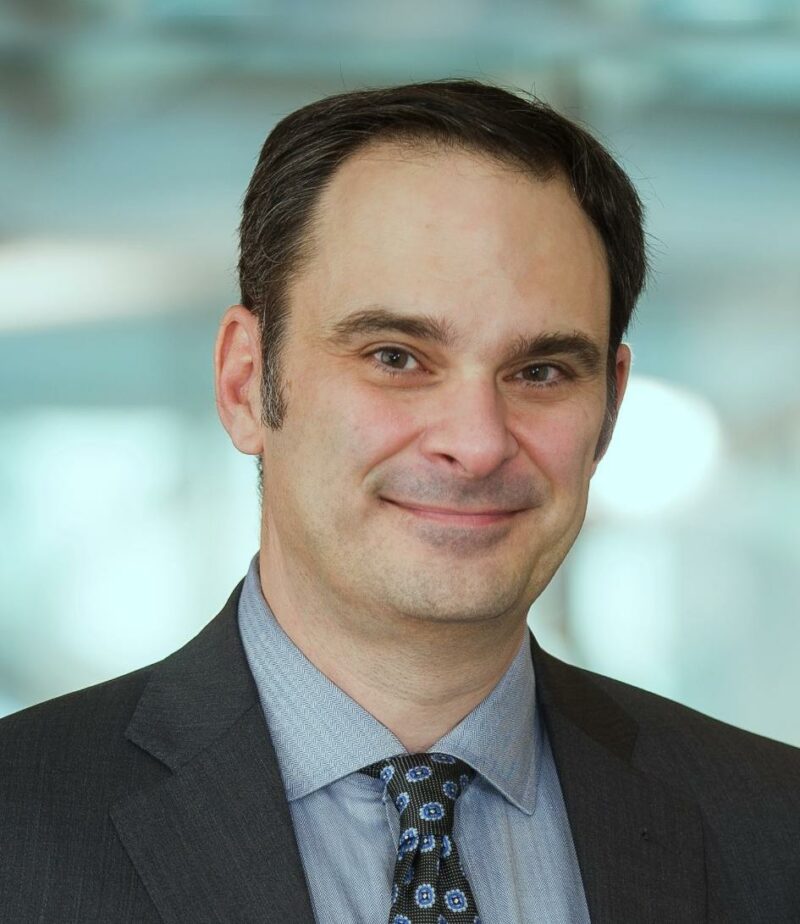
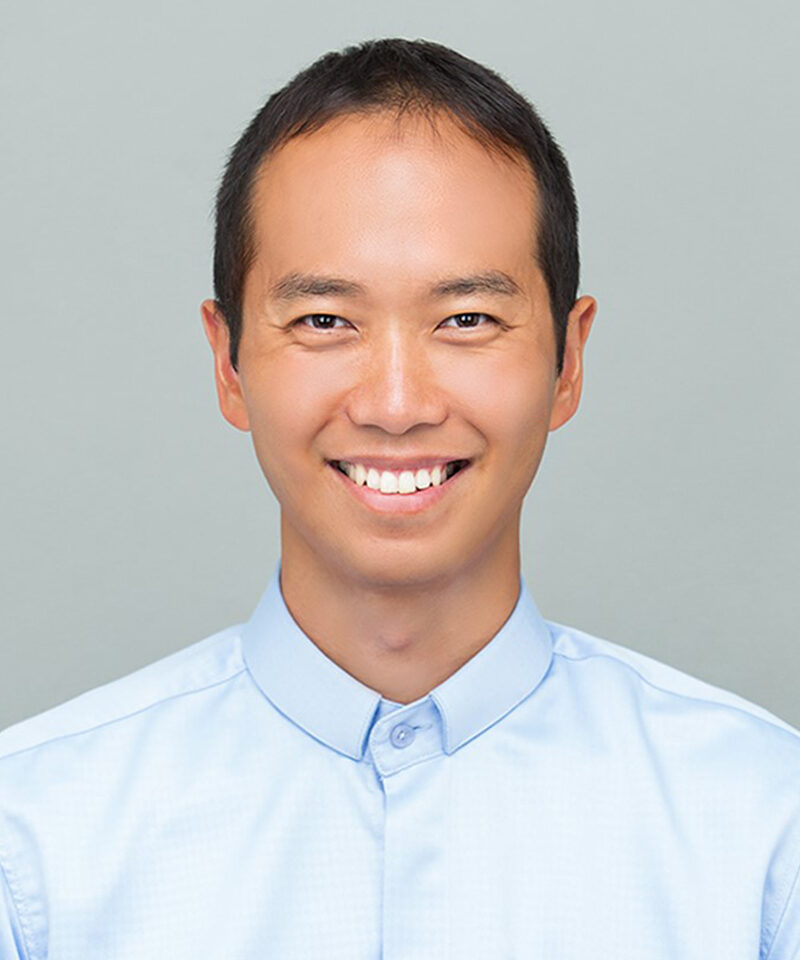 Chansong Cameron Lee, who earned a Ph.D. in international relations from the Paul H. Nitze School of Advanced International Studies at Johns Hopkins University, shared his work on “Nuclear Receptivity on the Frontline: Analysis of Norwegian Nuclear Allergy and South Korean Nuclear Enthusiasm During the Cold War.” In the paper, Lee explores why some states are willing to host a deterrer’s nuclear weapons on their territory, while others are reluctant to do so. These differences, he argues, arise from a state’s geostrategic position and domestic politics. Dr. Michael Mazarr from the RAND Corporation agreed that the topic was very timely, with tensions rising around nuclear deterrence on the Korean peninsula. He encouraged Lee to consider other variables that might impact states’ willingness to host nuclear weapons.
Chansong Cameron Lee, who earned a Ph.D. in international relations from the Paul H. Nitze School of Advanced International Studies at Johns Hopkins University, shared his work on “Nuclear Receptivity on the Frontline: Analysis of Norwegian Nuclear Allergy and South Korean Nuclear Enthusiasm During the Cold War.” In the paper, Lee explores why some states are willing to host a deterrer’s nuclear weapons on their territory, while others are reluctant to do so. These differences, he argues, arise from a state’s geostrategic position and domestic politics. Dr. Michael Mazarr from the RAND Corporation agreed that the topic was very timely, with tensions rising around nuclear deterrence on the Korean peninsula. He encouraged Lee to consider other variables that might impact states’ willingness to host nuclear weapons.
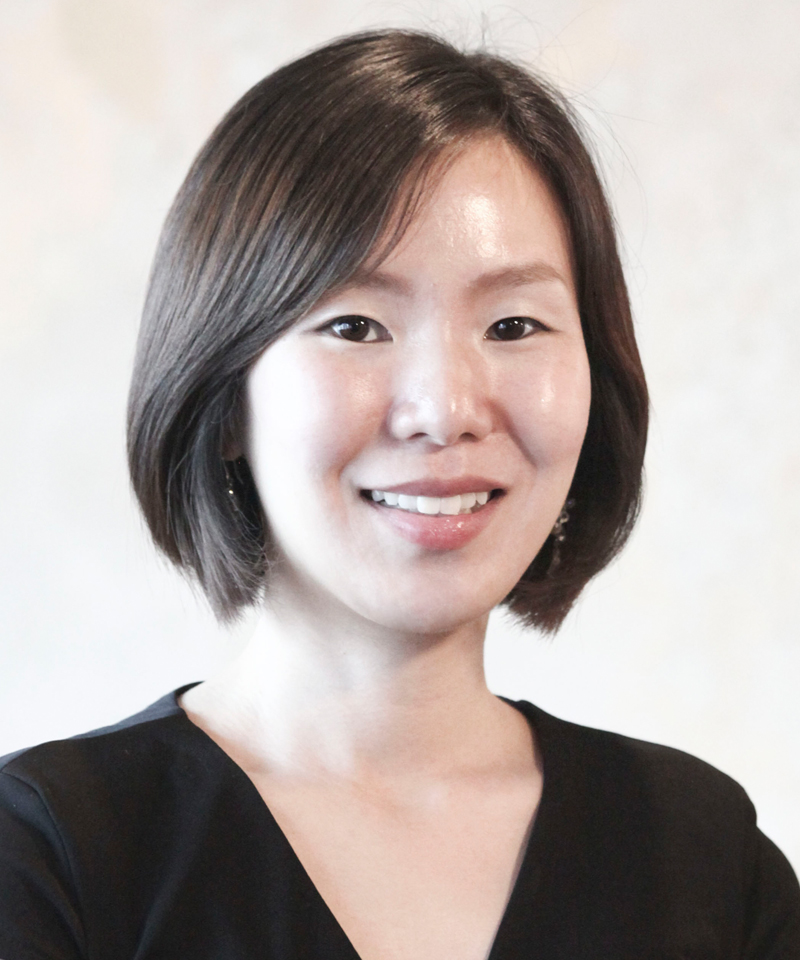
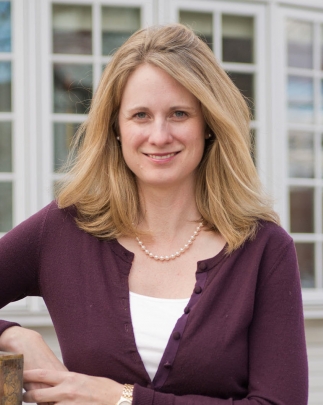 So Yeon (Ellen) Park, who earned a Ph.D. in political science from UC Santa Barbara, closed the conference with a discussion on an early draft of her policy paper, “Alliance Cohesion and Role-Taking Mechanism Toward Threat Perception.” In the paper, which draws on sociological role theories, Park explores the degree to which allies agree on strategies to address common external threats. Professor Jennifer Lind from Dartmouth College praised Park’s ideas and provided a host of helpful comments to encourage the paper’s conceptual development, particularly through an analysis of whether the degree of alliance cohesion is different within each state between the center and the periphery.
So Yeon (Ellen) Park, who earned a Ph.D. in political science from UC Santa Barbara, closed the conference with a discussion on an early draft of her policy paper, “Alliance Cohesion and Role-Taking Mechanism Toward Threat Perception.” In the paper, which draws on sociological role theories, Park explores the degree to which allies agree on strategies to address common external threats. Professor Jennifer Lind from Dartmouth College praised Park’s ideas and provided a host of helpful comments to encourage the paper’s conceptual development, particularly through an analysis of whether the degree of alliance cohesion is different within each state between the center and the periphery.
The conference allowed the fellows to benefit from thoughtful—and thought-provoking—feedback on their research and exposed them to academic-policy veterans well-versed in navigating between the academic and policy worlds. As Jenner said, “Coming from a science background, having the chance to meet all these high-level people and get so much support really means a lot.”
The UC-National Labs Fellowship is possible because of the ingenuity and hard work of a collaborative team across the UC system and the labs. This includes Dr. June Yu, Associate Vice President of the UC-National Labs, who said: “We are absolutely delighted with the exceptionally talented postdoctoral fellows this program has been able to attract. The program’s success is a testament of the intellectual leadership at UC and its two UC-affiliated national security labs. We are particularly grateful to Professor Neil Narang for his expert leadership and guidance in developing the program curriculum and to IGCC for providing excellent administrative support for this program. The UC National Laboratories Office is excited about this opportunity for building intellectual capacity across the National Labs and the UC system in the nexus of emerging technologies and international security issues.”
Narang credited many individuals for the program’s success. “The conference was a tremendous success, not least because of the audience in attendance. Thom Mason (Director at LANL) and Kim Budil (Director at LLNL) spent the entire day with the Fellows asking questions of nearly every project,” Narang said. “Together, June, Brad Roberts from LLNL (former Deputy Assistant Secretary of Defense for Nuclear and Missile Defense) and William Tobey from LANL (former Deputy Administrator at the National Nuclear Security Administration in the Department of Energy) conceived of the fellowship and built support within their respective institutions, handpicked the fellows, and—along with Michael Albertson at LLNL—mentored the fellows throughout the year. They deserve all the credit for supporting this work.”
As Dr. Holdren said during his remarks, taking an interdisciplinary approach to international security is essential. The joint Postdoctoral Fellowship on Technology and International Security is the concrete effort by IGCC, the University of California, and the National Labs to achieve this, allowing them to foster both scientific and political analysis to contribute to the security of our world.
